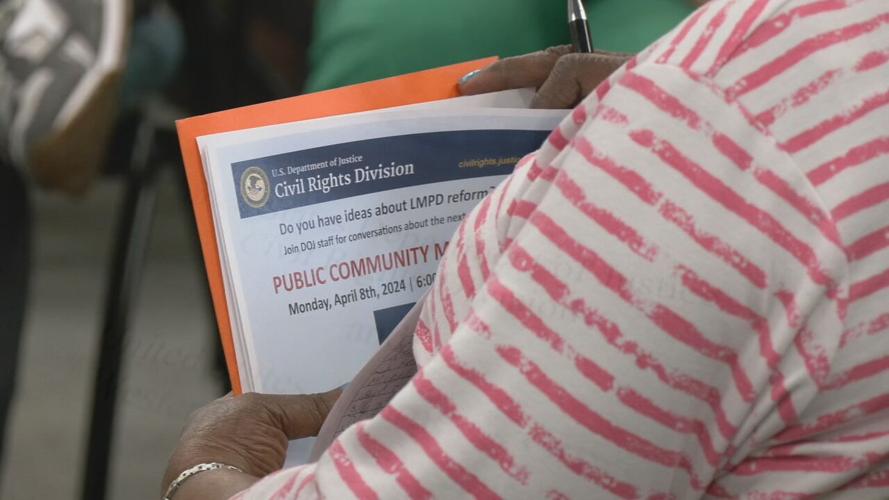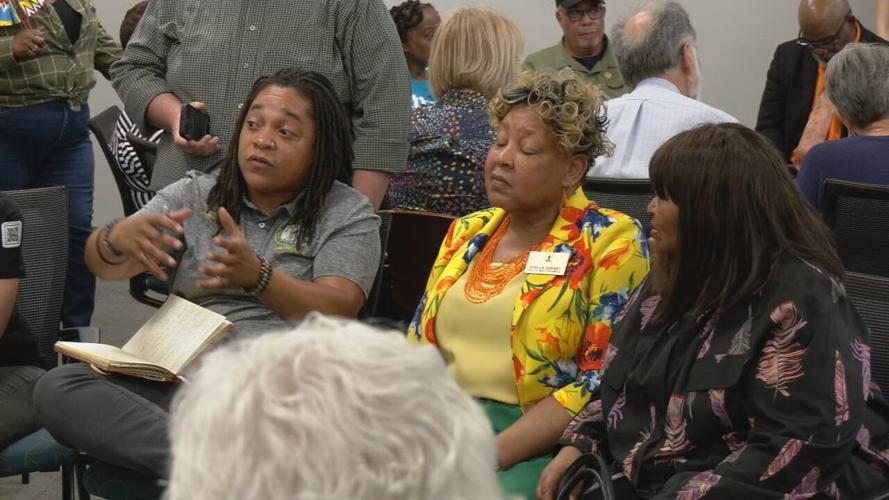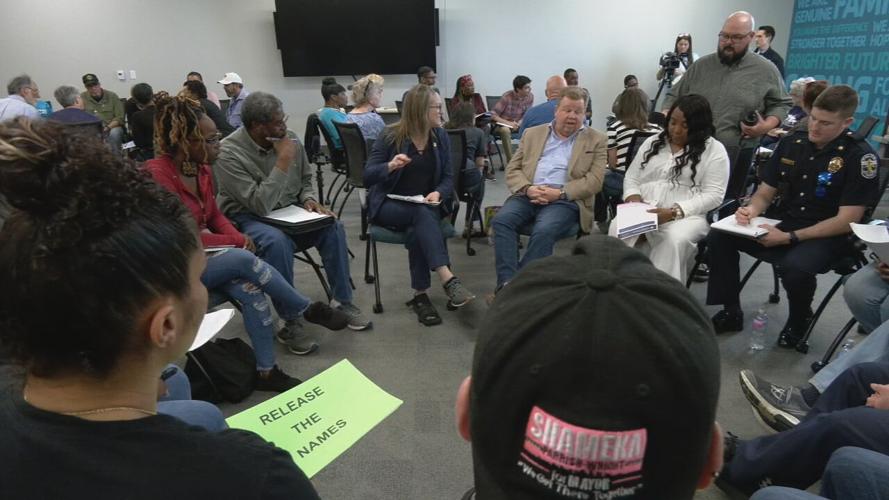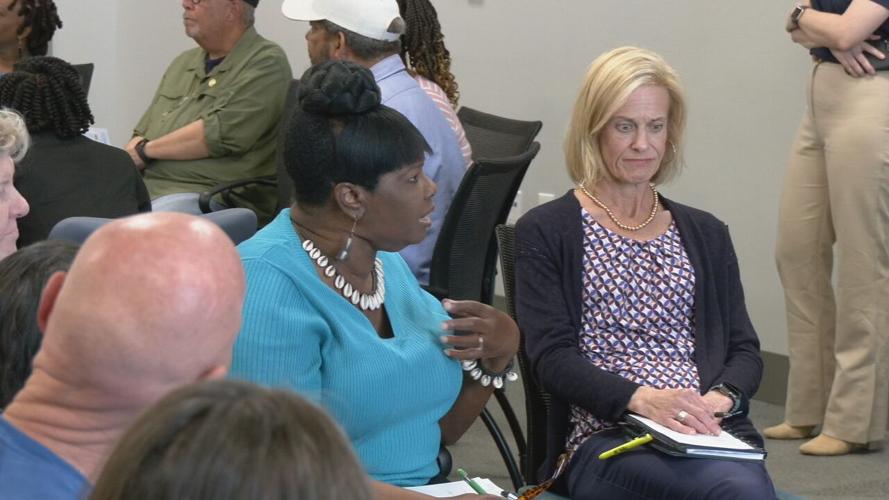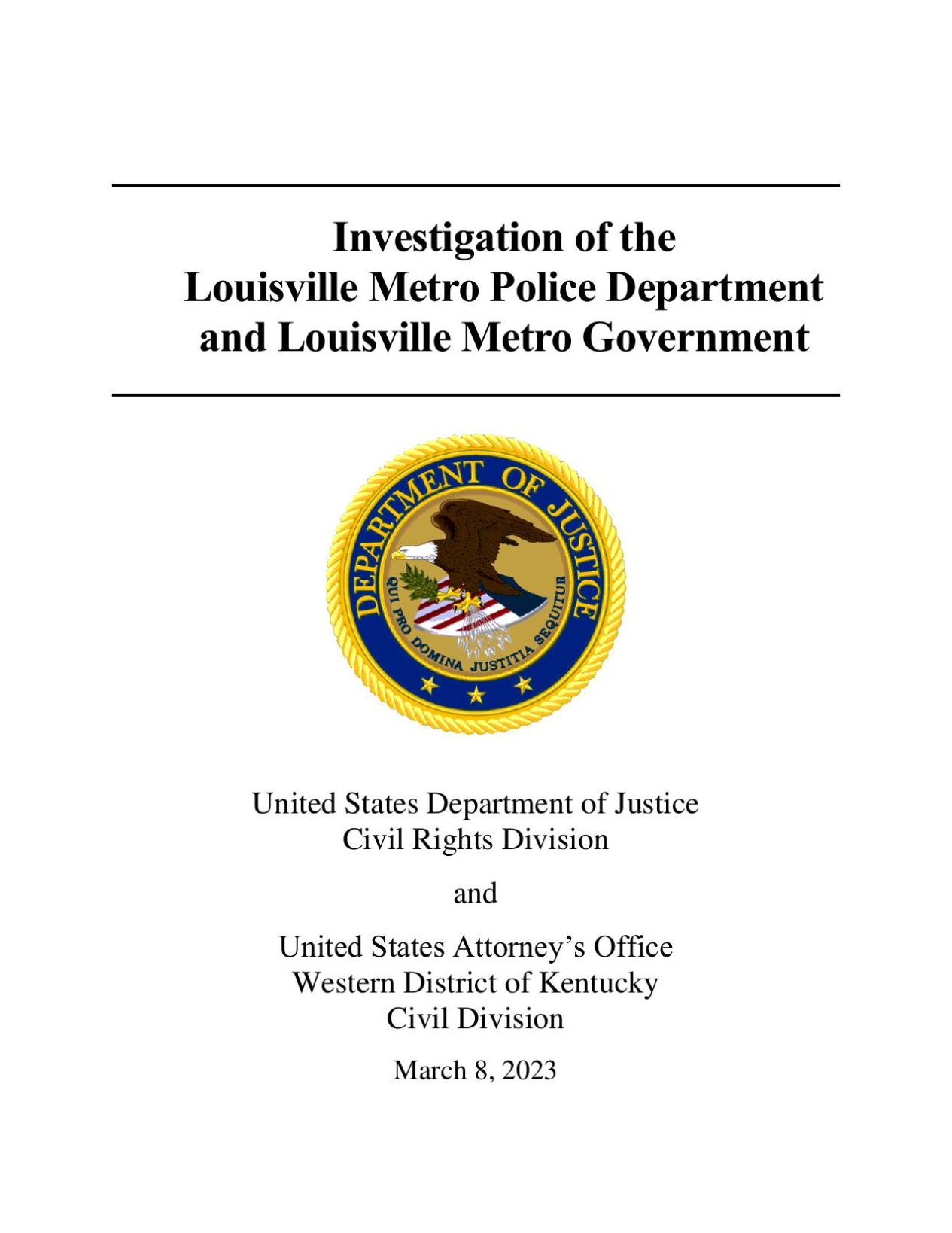LOUISVILLE, Ky. (WDRB) -- Concerned citizens say their patience is running out for the U.S. Department of Justice to put the Louisville Metro Police Department under a mandated contract for police reform.
The process began more than a year ago, when the DOJ came to Louisville and released a scathing report into the city's police department with its findings from a yearslong investigation prompted by the March 2020 police killing of Breonna Taylor.
In the report, the DOJ said they believe LMPD and Metro Government engaged in practices that violated the U.S. Constitution and federal law for years, including excessive use of force and searches based on invalid search warrants.
The DOJ ordered Louisville's police department to enter a consent decree. The oversight agreement sets tangible requirements for change, metrics to measure improvement and timelines to achieve them. It's all approved by a federal judge, legally binding and then overseen by a independent monitor who must regularly report progress or any problems to the public.
In February, officials with the city and LMPD began negotiations with the DOJ. While work has been done over the last year — with a new police chief and a new mayor — a lot of that work has been done behind the scenes. It's a growing concern for some residents, who attended a forum with DOJ officials Monday evening and said they want real change.
The federal investigation into LMPD cites 63 different incidents of alleged misconduct, according to an appendix of a 90-page report the U.S. Department of Justice released last March following their roughly two-year investigation into LMPD. By 2022, at least nine officers had been convicted in federal court and several more cases are pending.
Examples of excessive force provided in the first section of the appendix include the use of neck restraints and police dogs against "people who pose no threat," an "unreasonable and unsafe" use of tasers, using takedowns, strikes and bodily force "disproportionate to threat or resistance," and escalating encounters, leading to excessive force.
Monica Thomas lives in Louisville's west end, and was among the concerned neighbors who attended Monday's community forum with the DOJ. It wasn't Thomas' first meeting, though. She has attended many of the forums held related to community improvement, including the first round of DOJ meetings following the release of its report into LMPD.

Monica Thomas attends a community forum with U.S. Department of Justice officials, Louisville officials and Louisville Metro Police Department officials on Monday, April 8, 2024. (WDRB photo)
"I'm tired of these folks coming into the community and attempting to articulate for me what the prescription is for solving the issues in my community," said Thomas.
There were more than 10 people involved in each roundtable discussion, led by a DOJ official who said residents are being listened to.
"You can tell us we have input, but that doesn't mean people listen," said Kini Shacarui.
Shacarui is among the residents tired of attending more meetings while seeing little change. She's keeping a close eye on the consent decree process.
"It's a really big issue, that we need to know what's going on," she said.
They want to see action, and a finalized consent decree for mandated police reform.
"We'll talk about the consequences of racism, but not the root cause of racism," said Thomas.
When pressed Monday, the DOJ didn't directly answer the question, but said they're going back to the negotiating table with officials from the city and LMPD.
Even though the DOJ report came out in 2023, the process dates back to the 2020 police killing of Breonna Taylor, whose name is never far from the conversation surrounding police reform in Louisville.
"So we don't forget why we're here, why the DOJ is here," said Nancy Cavalcante, who took a sign with Taylor's name on it to the meeting.
The DOJ said LMPD has already enacted some reforms, pointing to the new leadership in place. But despite those changes, Thomas and Shacarui are among those who remain skeptical.
"I want to be hopeful, but I know how the city works. So we'll have to wait and see," said Shacarui.
Another community meeting is scheduled for next Tuesday, where residents can share their ideas for police reform. It's still not clear how long it will be before the consent decree is agreed to. The process is expected to take months.
Related Stories:
- Process to reverse bad policing practices in Louisville began 1 year ago with release of DOJ report
- City of Louisville, LMPD officials begin negotiations with DOJ for police reforms
- Louisville police chief testifies DOJ consent decree is in a 'holding pattern,' negotiations haven't begun
- City fights to keep Department of Justice findings out of lawsuits against Louisville police
- LMPD chief says 'many' officers cited in DOJ probe were previously disciplined, but no further investigations
- Greenberg releases details of Louisville police incidents reviewed by DOJ
- 'All we want is justice' | DOJ meets with community members about policing in Louisville
- DOJ investigation cites more than 60 different examples of alleged misconduct by Louisville police
- Calls for more information before LMPD, DOJ negotiate agreement to improve policing in Louisville
- Former Louisville police chief agrees with many items in DOJ report
- 10 years into their consent decree, New Orleans police say Louisville has long road ahead
- Former LMPD officers say changes to department after DOJ probe could take some time
- Louisville police union says DOJ report is 'unfair assessment' of most Louisville police
- Victims of LMPD policing react to federal investigation findings as they continue rebuilding their lives
- What's next: Federal probe prompts mandated reforms in LMPD
- Department of Justice issues scathing report into Louisville police practices
Copyright 2024 WDRB Media. All Rights Reserved.
